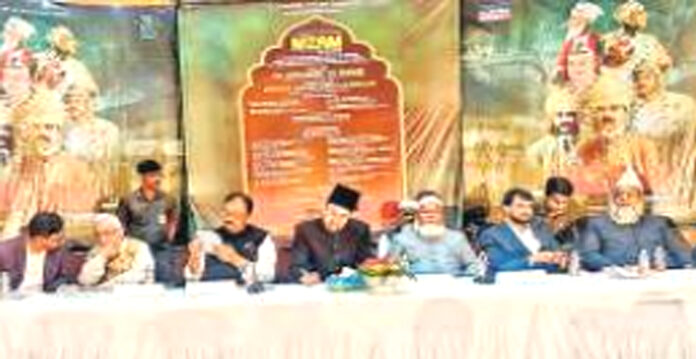The 9th Nizam of the Asaf Jahi Dynasty, Nawab Raunaq Yar Khan, attended an international seminar titled The Nizam Era (1724–2024): A 300-Year Journey of Legacy & Inspiration held at the Administrative Staff College of India (ASCI) in Hyderabad. The event brought together scholars, historians, and prominent personalities to reflect on the dynasty’s enduring legacy and its significance in modern India.
The seminar was inaugurated by Mohd Ali Shabbir, Advisor to the Telangana Government, who emphasized the importance of preserving the rich history and heritage of the Asaf Jahi Dynasty. A keynote address was delivered by Maulana Khaled Saifullah Rehmani, President of the All India Muslim Personal Law Board, who shared insights on the dynasty’s cultural and historical impact. Former Special Chief Secretary Ajay Mishra also attended the event, underscoring the legacy of the Nizams in shaping the region’s development.
During his address, Nawab Raunaq Yar Khan reflected on the legacy of his ancestors, highlighting the contributions of all ten Nizams to the social, economic, and cultural fabric of Hyderabad and India. He noted that understanding the dynasty’s history fosters unity in diversity and enhances democratic values in the country. “The Nizam dynasty’s contributions to India’s development and governance remain relevant today, and their legacy must be remembered and celebrated,” he said.
Also Read: Nizam VII’s Granddaughter Fouzia Files Criminal Case Over Rs 121 Crore Land Fraud
Key discussions at the seminar focused on several aspects of the Asaf Jahi legacy, including the financial state of the royal family, the dynasty’s approach to secularism, and its commitment to education. Scholars presented research approved by Munsif’s committee, exploring lesser-known aspects of the Nizams’ rule and their influence on modern India.
A central theme of the seminar was the integration of the Nizam dynasty into democratic India post-independence, as well as the alignment of its governance with Islamic principles, particularly consensus (Ijma). One notable topic of discussion was the historical recognition of the Nizams, questioning why only seven out of the ten rulers of the Asaf Jahi dynasty are widely acknowledged. The seminar aimed to honor all ten Nizams, ensuring their contributions are celebrated as part of the rich history of Hyderabad and the Deccan region.
The event served as an academic platform for dialogue, inviting global perspectives on the dynasty’s role in shaping India’s past, present, and future. Historians and scholars from around the world participated, examining the 300-year journey of the Asaf Jahi Dynasty, from its founder Qamaruddin in 1724 to Hyderabad’s annexation in 1948. The discussions emphasized the Nizam era’s enduring influence and its continued relevance in contemporary India.
The seminar was not only a space for academic exchange but also an opportunity to inspire future generations to appreciate and learn from the legacy of the Asaf Jahi rulers.
(This story is sourced from a third-party syndicated feed. Raavi Media takes no responsibility or liability of any nature. Raavi Media management/ythisnews.com can alter or delete the content without notice for any reason.)


